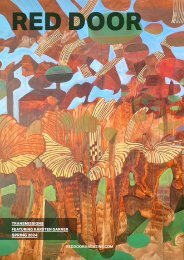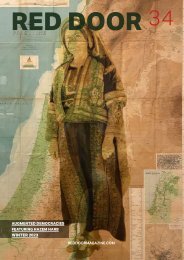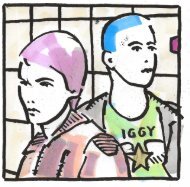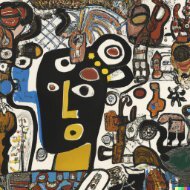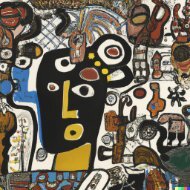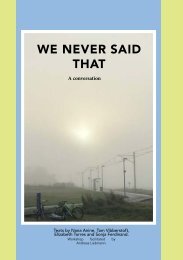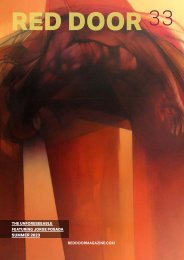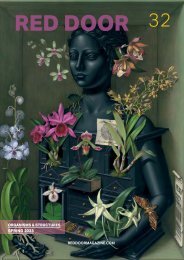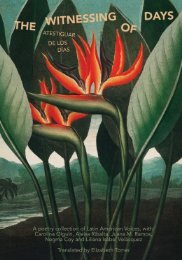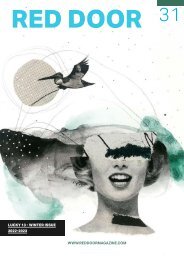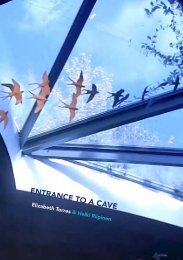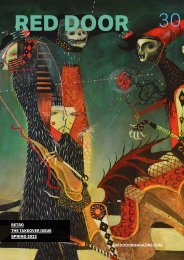Ecology Lexicon Amazon
Create successful ePaper yourself
Turn your PDF publications into a flip-book with our unique Google optimized e-Paper software.
5.The politics of artistic<br />
research can significantly<br />
disrupt the conventional path<br />
of creative development<br />
by imposing rigorous<br />
accreditation requirements<br />
on artists to compete for<br />
recognition and opportunities<br />
within increasingly challenging<br />
circumstances.<br />
Such<br />
requirements can be subject<br />
to various forms of institutional<br />
power, which may impede the<br />
recognition and dissemination<br />
of their work. Consequently,<br />
artists may feel compelled to<br />
prioritize technical proficiency<br />
over social and ecological<br />
impact by pursuing narrow,<br />
discipline-specific research<br />
programs. This has resulted in<br />
a complex web of institutional<br />
structures that artists must<br />
navigate in order to gain<br />
recognition for their work.<br />
6. Moreover, the dominance<br />
of certain media formats and<br />
institutional frameworks can<br />
further limit the diversity of<br />
narratives that are represented<br />
in artistic research. This can<br />
result in the exclusion of<br />
alternative perspectives from<br />
the discourse. To address these<br />
challenges, artists must engage<br />
actively with the political<br />
and institutional dimensions<br />
of artistic research while<br />
demonstrating a commitment<br />
to<br />
interdisciplinary<br />
collaboration and communitybased<br />
activism.<br />
144<br />
This will foster the creation of<br />
more inclusive and sustainable<br />
practices that can transform the<br />
traditional systems of artistic<br />
production and distribution.<br />
In summary, the findings of<br />
this investigation highlight<br />
the importance of considering<br />
mental, economic, and<br />
environmental sustainability in<br />
the context of artistic research.<br />
Effective time management<br />
strategies, collaborations with<br />
institutions, and embracing<br />
diverse perspectives and<br />
multimedia resources can all<br />
play a role in promoting a<br />
more sustainable and inclusive<br />
artistic ecosystem.<br />
Lastly, as depicted in the<br />
Natural Response painting<br />
series shared in these pages,<br />
the process of embodiment of<br />
knowledge, that is to say the<br />
acquisition, processing and<br />
dissemination of knowledge,<br />
is not just a cognitive process,<br />
but a holistic and organic one<br />
that involves our bodies and<br />
the environment around us.<br />
By embracing this embodied<br />
approach to artistic research,<br />
artists can create work that is not<br />
only intellectually stimulating<br />
but also emotionally and<br />
physically engaging, ultimately<br />
leading to a more sustainable<br />
and enriching artistic practice.



